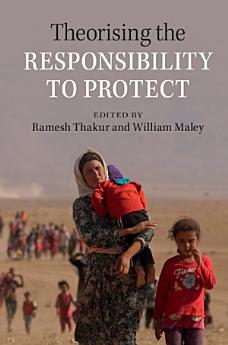Theorising the Responsibility to Protect
Über dieses E-Book
Autoren-Profil
Ramesh Thakur is Director of the Centre for Non-Proliferation and Disarmament at The Australian National University, Canberra. Formerly Assistant Secretary-General of the United Nations, he is editor-in-chief of Global Governance and a member of the editorial board of Global Responsibility to Protect. Among his many books are The United Nations, Peace and Security: From Collective Security to the Responsibility to Protect (Cambridge, 2006) and The Responsibility to Protect: Norms, Laws and the Use of Force in International Politics (2011).
William Maley is Professor of Diplomacy in the Asia-Pacific College of Diplomacy at The Australian National University, Canberra and a member of the editorial board of Global Responsibility to Protect. He has co-edited The Soviet Withdrawal from Afghanistan (Cambridge, 1989) and Russia in Search of its Future (Cambridge, 1995).






